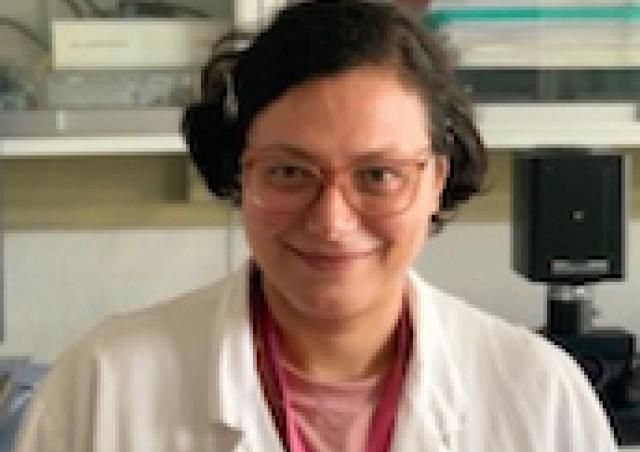Approximately 800 million patients have been infected with SARS-CoV-2 worldwide, most of them recovering from mild to moderate illness (COVID-19). However, a minority of patients develop severe forms with multi-organ failure and often acute respiratory distress syndrome. These serious forms have caused around 7 million deaths. Although in most cases fatal outcome is associated with age and comorbidities, it can also occur in younger people without associated pathologies. In this context, it would be extremely important to be able to identify risk markers to predict which COVID-19 patients are at high risk of complications and death.
The role of the genetic background has already been shown in multiple infectious diseases. Several gene variants contributing to the severity of COVID-19 have been identified. Loss-of-function variants in the Toll-3 receptor and interferon regulatory factor genes affect type I interferon production, and missense mutations in the gene encoding Rab46 have been associated with higher mortality.
In healthy subjects, the rate of production of T lymphocytes by the thymus is modulated by a genetic polymorphism at a locus located in a non-coding region of the T cell receptor gene, the SNP rs2204985. Subjects with the GG genotype (where G indicates the base present in the locus of each allele) are the most efficient producers, AA subjects the least efficient, GA subjects being intermediate. However, it was recently discovered that in critically ill COVID-19 patients with pulmonary involvement, thymic reactivation, evidenced by increased thymic production of new lymphocytes with or without thymus hypertrophy, was associated with a favorable prognosis. This observation led to evaluate the impact of the SNP rs2204985 on the immune response in the context of severe pulmonary infection caused by SARS-CoV2.
The authors carried out a study of the impact of this polymorphism in patients all having a severe form of COVID-19 with severe pneumonia. They demonstrate that the SNP rs2204985 determines the quality of the immune response against SARS-CoV2, with clinical consequences. Compared to AA and GA subjects, GG subjects have both greater thymic production of naïve T lymphocytes, stronger and more durable humoral and cellular immune responses specific to SARS-CoV-2 antigens and less lung damage, all other severity factors being otherwise comparable in the two groups.
The polymorphism of the rs2204985 locus therefore appears to be a predictive marker of anti-SARS-CoV-2 immunity. It is also likely that this correlation between genotype and immune response is important for other diseases, infectious or not, associated with stimulation of the thymus. Future studies will determine the prognostic value of rs2204985 analysis in the clinic.
Image copyright: Adobe stock
Reference
Roux HM, Marouf A, Dutrieux J, Charmeteau-De Muylder B, Figueiredo-Morgado S, Avettand-Fenoel V, Cuvelier P, Naudin C, Bouaziz F, Geri G, Couëdel-Courteille A, Squara P, Marullo S, Cheynier R. Genetically determined thymic function affects strength and duration of immune response in COVID patients with pneumonia. Sci Adv. 2023 Sep 22;9(38):eadh7969.
doi: 10.1126/sciadv.adh7969. Epub 2023 Sep 22. PMID: 37738336.











